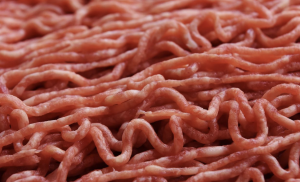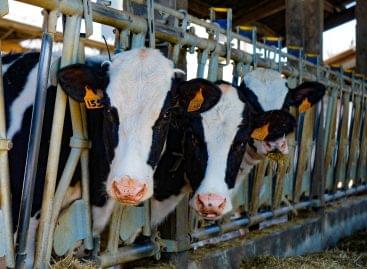EU urged to be at forefront of cultivated meat research and innovation
Europe is at risk of falling behind in the race to commercialize cultivated meat, heard the first ever European Parliament debate about cultivated meat, held on Wednesday 13 July.

The event brought together many of Europe’s key players in the field.
Cultivated meat was first developed in Europe by Dr Mark Post, who created the first cultivated burger in 2013, and there are now more than 100 companies around the world developing this food. But, with other countries including Israel and the US are making major investments in this space, Europe is lagging, they said.
Alex Holst, senior policy manager at Good Food Institute Europe, called on the European Union to invest more in public research and development, pointing to the recent IPCC report that acknowledged the huge potential of sustainable proteins to reduce climate emissions. He told the debate: ”This is one of the sectors of the future – we need to embrace it. By putting itself at the forefront of cultivated meat research and innovation, the EU could really shape the direction of the sector and maximize its public benefits.”
Robert Jones, president of Cellular Agriculture Europe and head of public affairs at Mosa Meat, said with demand for meat growing around the world, we will need two and a half planet Earths to feed the world’s population by 2050 using conventional animal agriculture.
He invited agricultural groups to work with the sector to discuss how farmers could play a role in the transition towards sustainable proteins – adding that cultivated meat was not a ’silver bullet’ in the fight against climate change and would supplement rather than replace conventional livestock farming.
Pelle Sinke form CE Delft, who carried out the first ever life cycle assessment of cultivated meat’s environmetal impact, said that if made using renewable energy it could reduce emissions by up to 92 % compared with conventional animal agriculture, as well as cutting land use by 95 % and water use by 78 %.
Speaking to FoodNavigator, Tilly Metz elaborated on the appeal of lab-grown meat.
„In many parts of the world, including the European Union, meat and dairy production and consumption levels are already far above environmental and health recommendations. There is an urgent need to speed up the transition to whole foods plant-based diets.”
„On the other hand, it is undeniable, that the majority of EU consumers still have a big appetite for meat and other animal products and are not willing or able to reduce their consumption of these products to sustainable levels at the necessary speed.”
During the panel discussion, meanwhile, a European Commission official said it expects the first application for EU authorisation for end of 2022, meaning that first cultivated meat products could hit shelves or restaurant plates in the second half of 2024.
„Beyond the question of mere food safety, there are still some open questions regarding environmental, social and nutritional impacts of cultivated meat.” added Metz. „I hope, that in the coming months, there will be more debates and more research into these questions, as well as a clear commitment of cultivated meat companies to maximise the societal benefit of their products and to look for cooperation opportinities with farmers.”
Source: foodnavigator.com
Related news
Bóly Plc. has developed a technology for breeding cattle capable of producing premium quality milk.
🎧 Hallgasd a cikket: Lejátszás Szünet Folytatás Leállítás Nyelv: Auto…
Read more >









